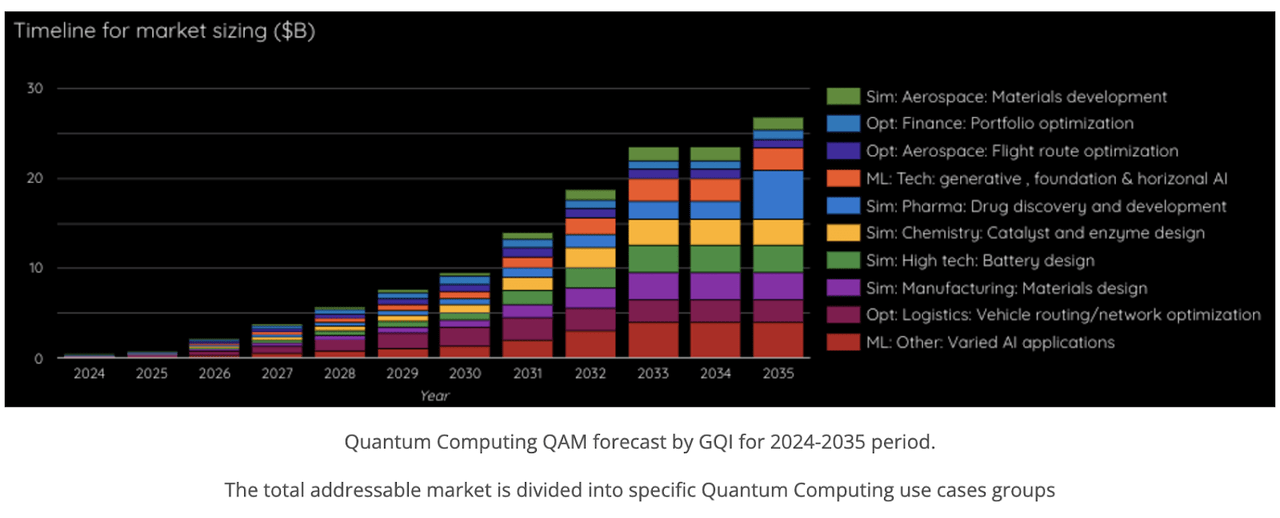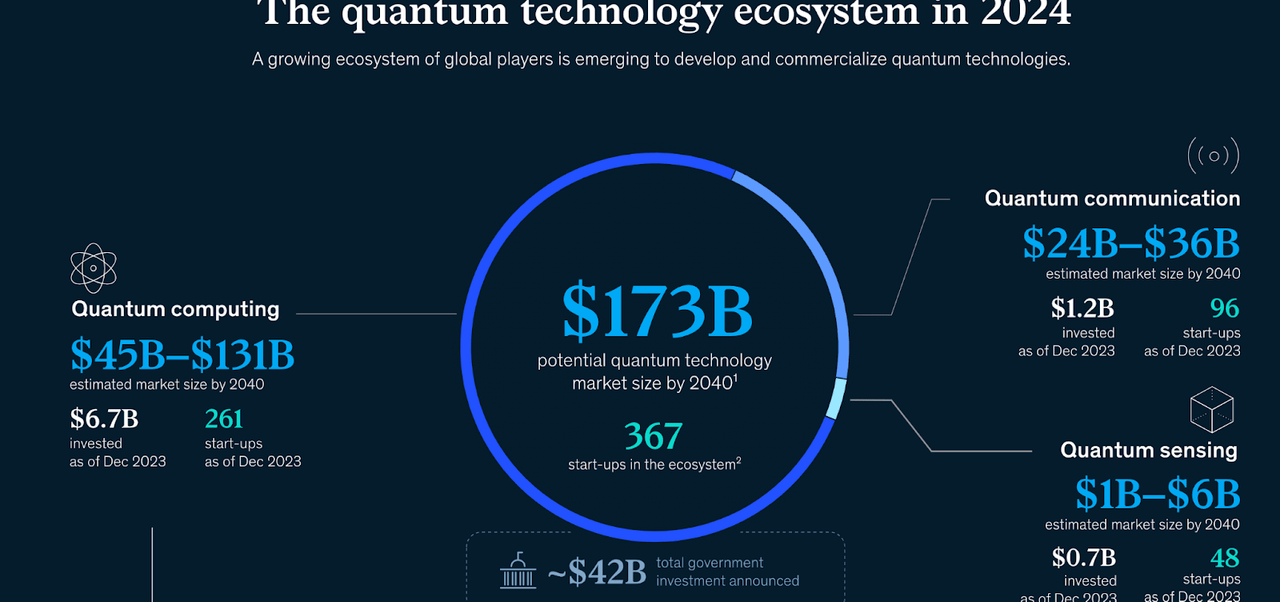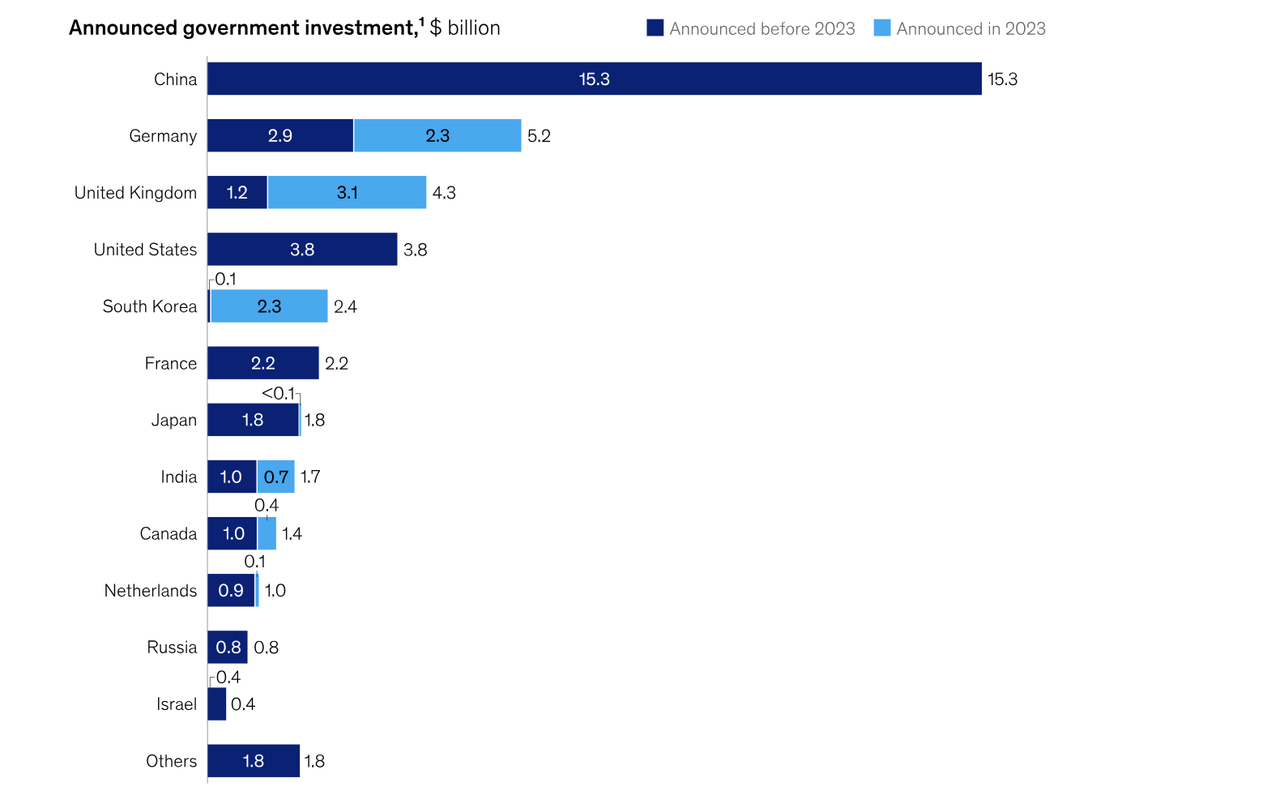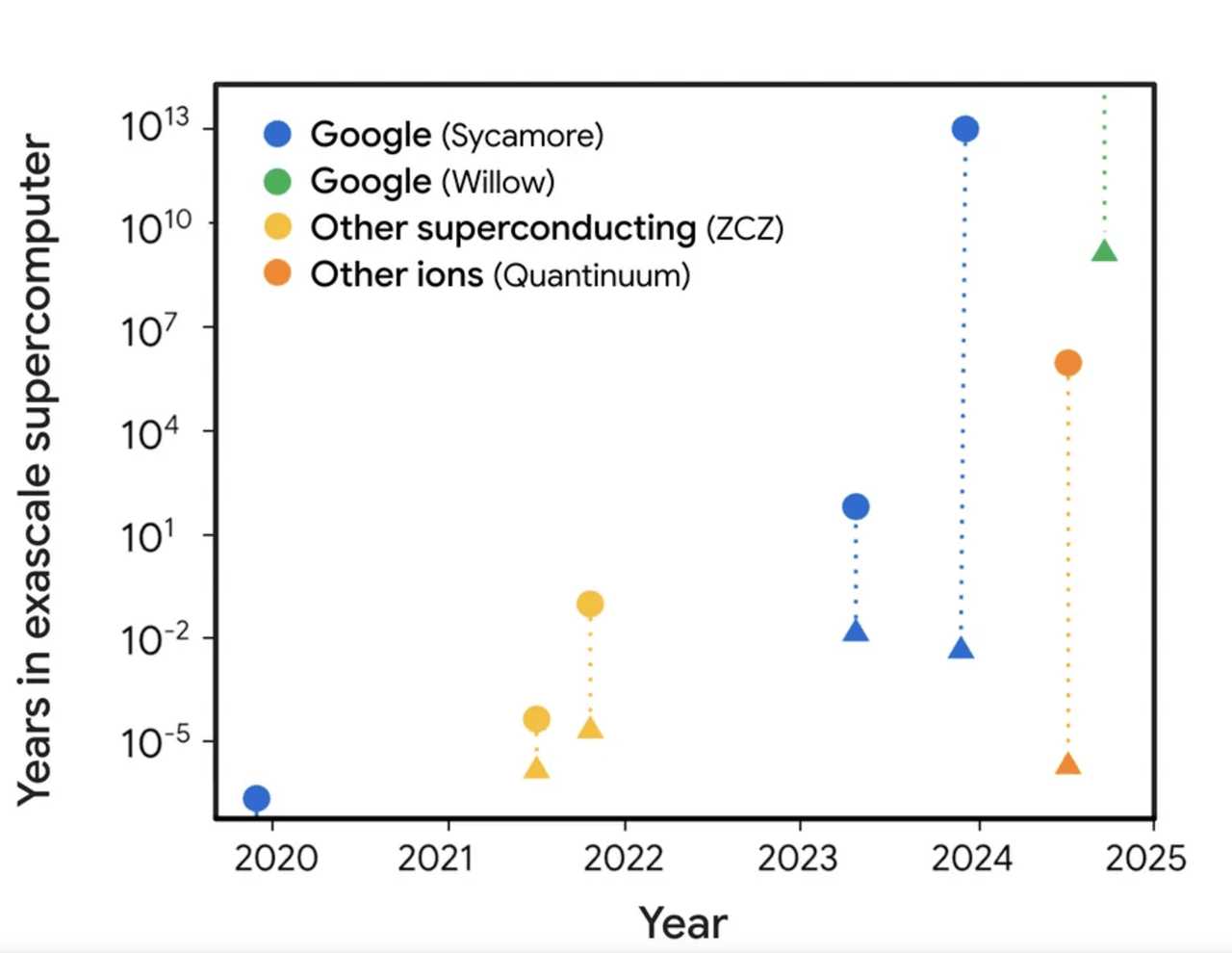Summary:
- Alphabet Inc. aka Google’s new Willow quantum computing chip could revolutionize computing and lead to breakthroughs in AI and other fields, making Google stock a strong buy.
- Willow’s advancements in quantum error correction and processing power are significant, completing tasks in minutes that would take classical computers septillions of years.
- The quantum computing market could reach $30 billion by 2035, with healthcare and AI as major beneficiaries, potentially driving Google’s revenues to $138 billion.
- Despite regulatory risks, Google’s strong balance sheet, reasonable valuation, and technological advancements make GOOGL a must-own stock, especially after recent sell-offs.
koto_feja
Thesis Summary
Alphabet Inc. (NASDAQ:GOOGL) (NASDAQ:GOOG) aka Google just unveiled its new quantum computing chip. Though the market’s reaction has so far been muted, this could be a big deal.
The Willow chip has shown two breakthroughs that suggest Quantum computing could be closer than we think.
This technology could pose a revolutionary leap forward in computing, and lead to breakthroughs in various fields, including AI.
If Google could achieve a market dominance like that of Nvidia (NVDA) then the revenues could be in the hundreds of billions
In my last article, I rate Google a Strong Buy, pointing out that there’s plenty to like about the company with and without AI. These latest developments in QC are proof of just that.
This is a company with a strong balance sheet and cash flow that is also at the forefront of technological advancements. A must-own in the tech space, especially at this price.
What Is Quantum Computing?
But what is this revolutionary technology? We’ll start with a textbook definition:
a multidisciplinary field comprising aspects of computer science, physics, and mathematics that utilizes quantum mechanics to solve complex problems faster than on classical computers
Source: AWS.
The best way to understand this, perhaps, is to compare QC to traditional computing. Where today’s computers use bits and binary code composed of 1s and 0s, a quantum computer would use a similar language, but with limitless possibilities, meaning a bit could simultaneously be a 0 and a 1 at the same time.
This unlocks limitless possibilities when it comes to processing information, and would completely change how we think about computing.
While this may sound like science fiction, it is simply applying principles of the very well-researched field of quantum physics.
Superposition: A quantum object can have multiple states at any given time.
Interference: These states can coexist without cancelling each other out
Entanglement: Though they are independent, different states of a quantum object are deeply connected.
Measurement: As soon as quantum objects are measured, they are “forced” to adopt a measurable physical state.
Quantum Computing Vs. Artificial Intelligence
QC and AI are both revolutionary technologies, but very different in reality. The simplest way to understand it is that AI is a software revolution, while QC is a hardware revolution.
Of course, the lines between software and hardware are becoming more blurred in today’s world.
Yes, AI could be defined as a computer program, but the AI we’ve come to know today would not be possible without the hardware (GPUs) that has been developed, mainly by Nvidia (NVDA).
And while QC would take the abilities of computers to the next level, the true benefits would no doubt come from the software that we would be able to run on these machines.
Google’s Willow Chip
Google’s Quantum AI Lab just unveiled the Willow chip, which according to the company poses a revolutionary step forward in quantum computing.
Willows has proven it can achieve “below threshold,” driving down eros while using more qubits (quantum bits)
Moreover, Willow has been able to process in five minutes what a supercomputer today would take 10 septillion years to process.
Let’s dig into these two points a bit deeper.
Today in Nature, we published results showing that the more qubits we use in Willow, the more we reduce errors, and the more quantum the system becomes. We tested ever-larger arrays of physical qubits, scaling up from a grid of 3×3 encoded qubits, to a grid of 5×5, to a grid of 7×7 — and each time, using our latest advances in quantum error correction, we were able to cut the error rate in half.
Source: Google Blog.
One of the largest challenges when it comes to QC is errors. Normally, the more qubits one uses, the more errors you encounter, but not with Willow.
As a measure of Willow’s performance, we used the random circuit sampling (RCS) benchmark. Pioneered by our team and now widely used as a standard in the field, RCS is the classically hardest benchmark that can be done on a quantum computer today. You can think of this as an entry point for quantum computing — it checks whether a quantum computer is doing something that couldn’t be done on a classical computer.
Source: Google Blog.
This is the test that was performed, where Willow completed the equivalent of a 10-septillion-year computation in five minutes. A septillion, by the way, is a million raised to the seventh power or 10 to the power of 42.
We can also see the results here compared to previous version interactions of Google’s QC.
These are the best results so far, and also orders of magnitude better than what the company was developing 2–3 years ago.
Market Implications, TAM, and Revenue
Now for the fun stuff. How big can QC get? Who will use it? And How much could Google benefit?
QC Market Forecast (Quantum computing report)
According to Quantum Computing Report, the QC market could reach close to $30 billion in size by 2035. This may not seem like a lot, but 2035 may still be early days for the industry.
What I like about the graph above is the breakdown by industry, which, I think, could be very accurate.
The largest beneficiary of Quantum computing will be, undoubtedly, healthcare and specifically drug discovery. This is already being revolutionized by AI, and paired with QC, this field will be completely revolutionized. Quantum Computers would be able to run millions of incredibly accurate simulations on various new drugs and treatments, leading to exponential advancement in the field.
And the second segment that would benefit the most would be AI. Today’s large language models, or LLMs, are limited by the available information and limited processing power, which would drastically change with QC.
It’s very challenging to estimate the size of a market of a technology we barely understand today.
Quantum computing market forecast (McKinsey)
Just to add more color, we can see that McKinsey forecasts a market size of $173 billion by 2040.
If Google were able to command a market leadership akin to Nvidia’s today, which controls 80% of the AI chip market, then we’d be looking at just over $138 billion in potential revenues.
But like with AI, it’s important to consider the potential risks that QC could create. QC could render today’s cybersecurity systems obsolete, and the leader in QC will have a very unfair advantage over everyone else.
Investment in QC by country (McKinsey)
So yes, QC will become a national security issue, China is leading the market here, investing 4x as much as the US.
Is Google A Buy Right Now?
Yes, undoubtedly Google is a buy, especially after the sell-off we’ve seen the last month.
On the positive side, you have a dominant company with a strong balance sheet and a reasonable valuation, PEG of 0.52, and the potential to unlock revolutionary technology.
On the other hand, you have regulators trying to cut Google’s wings, with speculation that the company might even have to spin off some divisions.
While this is not a risk that should be taken lightly, it’s a small price to pay to gain exposure to what I consider to be the best company in the tech space to own, perhaps tied with Amazon (AMZN).
Final Thoughts
In conclusion, I rate Google a strong buy. The latest developments in QC are just another show of how much potential this company has. There’s no need to invest in speculative companies to gain exposure to the most advanced technological developments. Just buy Google.
Editor’s Note: This article was submitted as part of Seeking Alpha’s Top 2025 Long/Short Idea competition investment competition, which runs through December 21. With cash prizes, this competition — open to all analysts — is one you don’t want to miss. If you are interested in becoming an analyst and taking part in the competition, click here to find out more and submit your article today!
Analyst’s Disclosure: I/we have a beneficial long position in the shares of GOOGL either through stock ownership, options, or other derivatives. I wrote this article myself, and it expresses my own opinions. I am not receiving compensation for it (other than from Seeking Alpha). I have no business relationship with any company whose stock is mentioned in this article.
Seeking Alpha’s Disclosure: Past performance is no guarantee of future results. No recommendation or advice is being given as to whether any investment is suitable for a particular investor. Any views or opinions expressed above may not reflect those of Seeking Alpha as a whole. Seeking Alpha is not a licensed securities dealer, broker or US investment adviser or investment bank. Our analysts are third party authors that include both professional investors and individual investors who may not be licensed or certified by any institute or regulatory body.
This stock is part of my End Of The World Portfolio.
A portfolio of highly diversified, secure and reliable companies that will do well in ANY environment.
Join the Pragmatic Investor today to get full access to the portfolio and more.
– Weekly Macro newsletter
– Access to the End of The World and YOLO portfolios
– Trade Ideas
– Weekly Video

